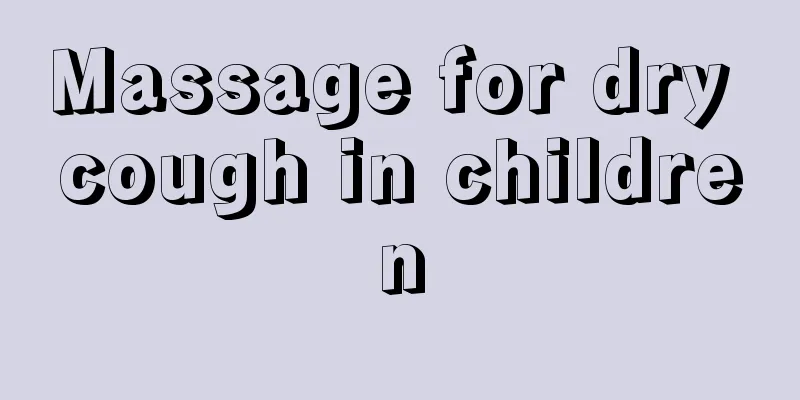What are the symptoms of urticaria in children?

|
If children suffer from urticaria, it is mostly related to diet. For example, some children will develop urticaria after eating seafood such as fish and shrimp. In addition, children like to play, and they may go to the woods outdoors to play and accidentally come into contact with pollen. It is also possible that children come into contact with pets such as cats and dogs, which will cause allergies and cause urticaria. 1. Acute urticaria The disease develops rapidly and violently, and minor skin lesions may occur. Within a certain range, patches of various shapes and areas will appear. The boundaries of these patches are very clear. Some are round or oval, and some are irregular in shape. The symptoms disappear very quickly, taking only about 30 minutes from the appearance of skin damage to the disappearance of symptoms, and no traces will be left on the skin. However, over time, these patches will reappear again and again, possibly several times a day. 2. Chronic urticaria This type of urticaria has a higher incidence rate, and more than half of urticaria are chronic. The patient's skin and mucous membranes may become congested or bleeding, and even local edema may occur. Several rashes will appear on the skin surface, and the itching will be unbearable. Patients will often scratch them constantly, which will have the opposite effect and make the itching even worse. The rash will appear again and again after being cured, and may last for several months or even a year. The disease may be acute or chronic, and is more severe in the early morning and evening, without severe systemic symptoms. The cause is not easy to identify. 3. What are the dangers of urticaria? 1. Local edema: External allergens cause inflammation in the body, microvascular congestion or fluid extravasation, which is a local edema phenomenon. 2. Severe itching on the body surface: The patches will gradually develop and expand, and finally merge into one. It is very itchy when the disease occurs, and the more you scratch, the more itchy it becomes. Long-term repeated attacks affect the child's daily routine. 3. Severe allergies: If the disease spreads to the gastrointestinal tract, vomiting, abdominal pain, and diarrhea may occur; if it involves the throat, it will cause swelling of the throat, difficulty breathing, and even death due to lack of oxygen; if it affects the lungs, it will cause unbearable chest tightness and shortness of breath. |
<<: What is kidney disease in children? These may be the reasons!
>>: How should children take care of their oral health?
Recommend
What is a febrile seizure in a child and what to do
Febrile convulsions are the most common cause of ...
What should I do if my baby has a fever of 41 degrees?
It is a common situation for babies to have a fev...
What should I do if my baby is bitten by fleas?
The appearance of fleas means that the room is no...
What should I do if my five-month-old baby has a fever while teething?
Babies usually start to grow teeth when they are ...
What are the clinical manifestations of infantile head hematoma?
Many children have swollen heads after birth, whi...
Common causes of small pimples on children
Small pimples on children's bodies are a rela...
Is it normal for my baby to have mucus in his stool?
When babies are young, they cannot express their ...
What is spastic cerebral palsy?
Spastic cerebral palsy in children is a disease t...
Can a three-month-old baby use a fan?
The hot summer is very unbearable, because it can...
The dangers of slapping children
Many parents become overwhelmed with anger when t...
How to deal with a baby hitting the back of the head
The back of the baby's head is the most vulne...
How much is the appropriate sleeping cover for a newborn baby?
Good sleep can ensure that you are full of energy...
Treatment methods for hoarseness in children
It is normal for children nowadays to have hoarse...
Can babies eat winter dates? Can children eat winter dates?
Winter dates are also a type of date. Their appea...
Can a one-year-old baby eat fried dough sticks?
In our country, most people love to eat fried dou...









